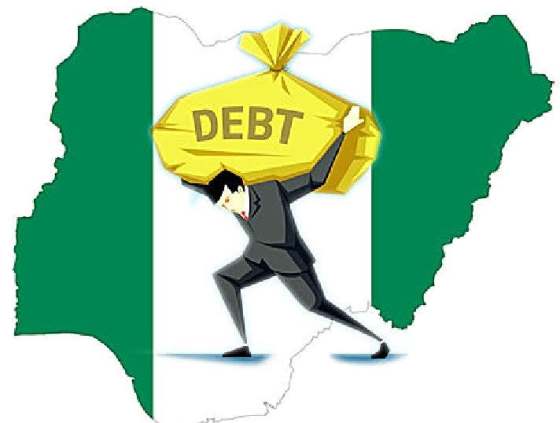
Nigeria Spends $1.12bn on Foreign Debt Servicing in Q1
The Federal Government spent about $1.12bn on foreign debt service payments in the first quarter of 2024, highlighting the growing burden of external debt on the nation’s finances.
Data obtained from the international payment segment of the Central Bank of Nigeria website revealed that debt service payments increased steadily between January and March and over the past few years.
In Q1 2023, debt servicing stood at $801.36m, but in Q1 2024, it shot up by 39.7 per cent to $1.12bn.
A monthly breakdown of the debt service payments reveals a fluctuating yet consistently high expenditure pattern.
The government started 2024 with a significant debt servicing obligation of $560.52m in January. This sum alone exceeded the entire debt servicing expenditure of January 2023 ($112.35m) by nearly five times, underlining the mounting pressure of foreign debt repayments on the nation’s finances.
In February 2024, the debt servicing payments were somewhat moderated but remained substantial at $283.22m. It is lower than January’s massive outflow, and February 2023’s debt servicing of $288.54m.
March 2024 continued the trend but at a lower figure, with Nigeria expending $276.17m on debt servicing. While this represented a slight decrease compared to February and a far lesser decrease from March 2023’s $400.47bn, it was still a notable expenditure, further burdening the country’s fiscal position.
It was further observed that Nigeria spent about 70 per cent of its dollar payments to service external debts between January and March 2024.
According to data from the Central Bank of Nigeria, out of the $1.61bn in total outflows made during this period, a substantial amount of $1.12bn was directed towards servicing external debt.
This figure represents a hefty slice of the nation’s financial resources and indicates a significant increase from the previous year when it was 49 per cent in Q1 2023.
Recall that foreign exchange reserves recently hit a one-month dip streak. The CBN Governor, Yemi Cardoso, said that the decreasing reserves were primarily due to debt repayments and other standard financial obligations, rather than efforts to defend the naira.
In a statement, the World Bank expressed deep concern over the escalating debt service costs that are burdening developing countries worldwide.
The World Bank’s Chief Economist, and Senior Vice President, Indermit Gill, emphasized the gravity of the situation, highlighting the potential for a widespread financial crisis if immediate and coordinated actions are not taken.
According to Gill, the combination of record-level debt and soaring interest rates has set many developing nations on a precarious path, one that could lead to economic distress and tough decisions regarding the allocation of resources.
The DMO had stated that Nigeria incurred a debt service of $3.5bn for its external loans in 2023. This was a 55 per cent increase from the $2.6bn incurred in 2022 as debt service-related payments for the country’s external debts.
>>> Read full article>>>
Copyright for syndicated content belongs to the linked Source : EconomicConfidential – https://economicconfidential.com/2024/05/nigeria-spends-foreign-debt/?utm_source=rss&utm_medium=rss&utm_campaign=nigeria-spends-foreign-debt
